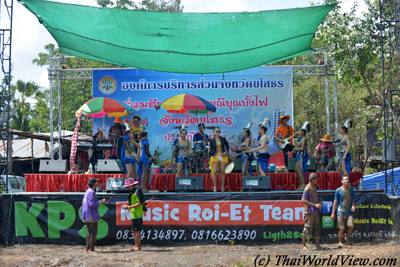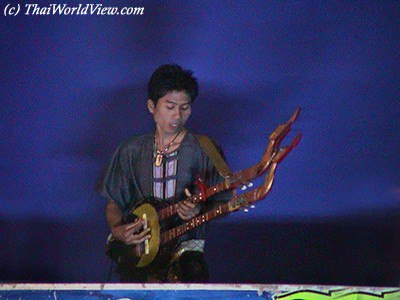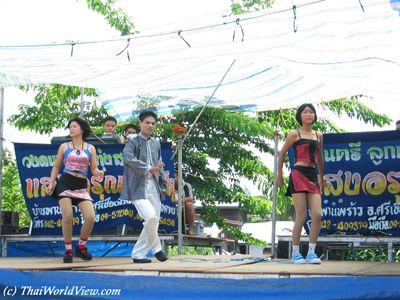Increase or decrease font size for easier reading : A+ A-
MOLAM MUSIC
หมอลำ or "MOLAM" music is coming from Laos and "ISAN" area (อีสาน - northeastern part of Thailand).

The instrumentation for "MOLAM" music includes the reed organ ("KAEN" - แคน), the guitarlike "PHIN" (พิณ), a bowed string instrument ("SOR" - ซอ), a hand drum and a circular panpipe.


In the more urban forms of "MOLAM", the traditional instruments are augmented by and sometimes replaced by synthesizers, electric bass and a Western drum set.

Performance of "MOLAM" was mainly a local affair confined to events and festivals in "ISAN". However in the 1970s and 1980s, more and more people left "ISAN" in search of work, the music spread with them. "MOLAM" performers began to appear on television, and it gained a national profile. At the same time, "ISAN" food became also more and more popular in Thailand. The music remains an important link to home for "ISAN" people in Bangkok, where "MOLAM" clubs and karaoke bars act as meeting places for "ISAN" migrants.

There are several kinds of Molam music such as "molam sing" (หมอลำซิ่ง), "molam pun lai" (หมอลำพันลาย), "molam phleun" (หมอลำเพลิน), "molam sa oon" (หมอลำสะออน) and so on... For example "MOLAM SING" songs start very slowly and then burst into very entertaining music. Dancing "MOLAM" is completely different from foreign dances. No contact between bodies but slow and harmonious hands and feet movements.

Molam shows are often mixed with humorous spectacles. During a whole evening from 7 p.m. to 1 a.m. there is a parade of singers with many feminine dancers changing costumes for each song. "MOLAM" singers are expert in verbal games when singing.

Molam songs are difficult to understand because Isan people speak quite fast. Isan language is similar to Lao language. Some words are specific to "ISAN" area and "ISAN" people tend to eat part of words.

Molam singers often receive money, flowers when singing. This is a way for listeners to show their satisfaction. Great singers receive many garlands. Each time the singer thanks with a "WAI" (ไหว้ - Thai greeting) even if he or she receives only 10 Baht. There are also schools for "MOLAM" singers where they learn to sing and dance gracefully.

comments powered by Disqus




